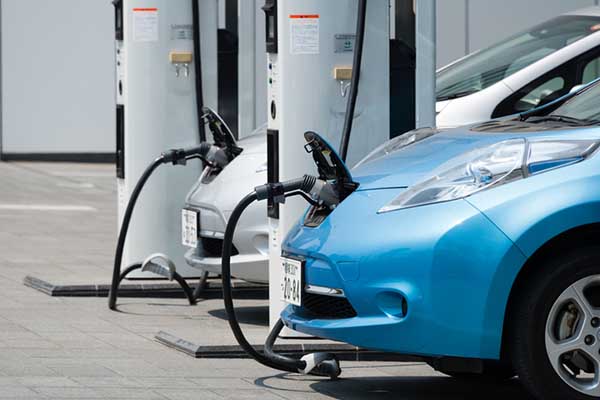Are Charging Times for EVs About to Get Shorter? What Students in Mechanic Programs Need to Know!

Here’s a look at what future mechanics might one day see.
A New Approach That Gets Around the Old Problems of Chemical Batteries
Some of the most successful EVs currently on the market, such as the Chevy Bolt, can only charge up approximately 6.5 kilometres of range per hour (via a standard 110v connection). This remains an issue for the buying public, with scenarios like unexpected journeys worrying away potential buyers.
However, a new technology, known as supercapacitor technology, replaces chemical-reaction based batteries with a contained field of electro-static energy. This field of energy can be fully charged in a fraction of the time, offering an attractive alternative.
The problem with supercapacitor material has been its inability to hold substantial charges. This could now be tackled through the new application of a polymer material. This storage material is a flexible material previously used for contact lens development. What will catch the attention of grads of auto mechanic college is how it can easily store huge electrostatic charges—more than enough to power a car for hours—and only take minutes to charge.
How Could a Supercapacitor Breakthrough Change Things for Grads of Mechanic Programs?
If this newly applied supercapacitor material proves to be the missing link needed to shorten charging times, it will be welcomed in an industry that has sought to overcome this obstacle for some time. Tesla, which delivers some of the fastest charges in the market at the moment, is especially interested in supercapacitor technology. Tesla’s CEO, Elon Musk, has publically stated that he views the future of EVs as lying with this technology, rather than chemical batteries. European producers have also paid attention, with PSA Peugeot Citroen having incorporated this kind of technology in its vehicles’ start-stop functions for several years.
For grads of a mechanic program, this could ultimately mean that this technology could become far more common in years to come.
Grads of Auto Mechanic College Know the Potential for a Road Revolution Is Close
The changes that a dependable and affordable supercapacitor-based vehicle could make on the market could be considerable. However, there are still some challenges to overcome with regards to finding a product that can satisfy on a cost basis, as well as providing the longevity that consumers expect from a car battery. Meanwhile, the demand for better performing EVs continues unabated, with lithium-ion batteries becoming better performing products on a year-on-year basis.

Many observers have stated that the likelihood is that the future will bring more vehicles that combine supercapacitor technology with traditional battery technology, rather than a sudden changeover. This would allow future vehicles to make the most of both proven and brand new technology. Of course, time will tell exactly how these developments play out.
Do you want to build a career in the exciting automotive sector?
Contact Automotive Training Centres today to learn how to become a mechanic.


